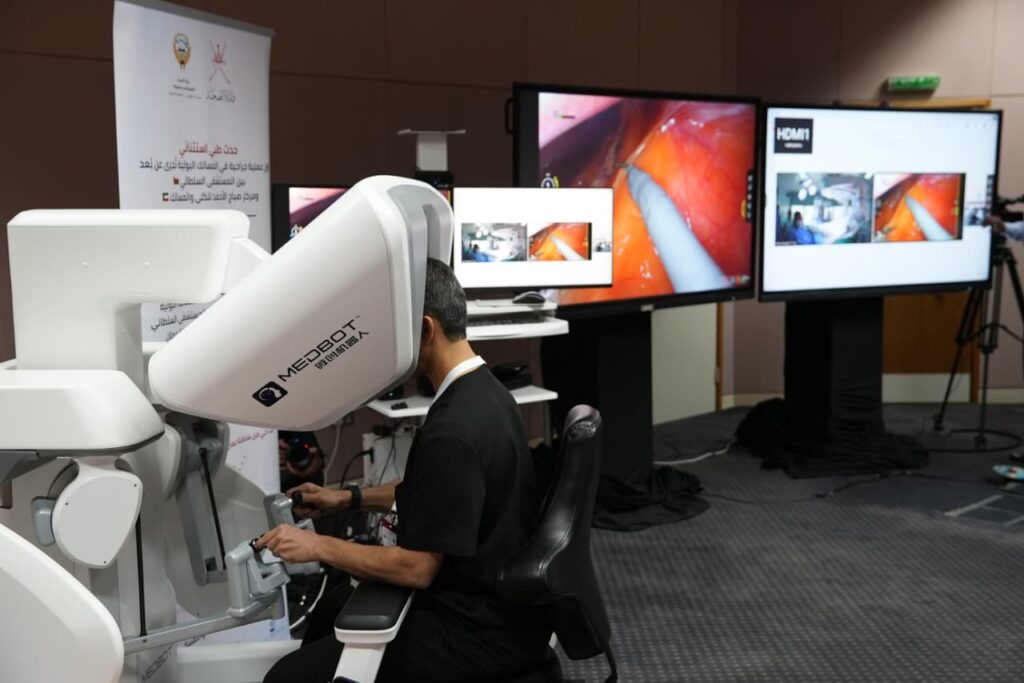MUSCAT – The pioneering procedure marks a major milestone for the Omani health sector and represents one of the region’s earliest applications of cross-border robotic surgery.
The operation enabled Omani and Kuwaiti surgical teams to jointly perform the procedure with high precision, minimal invasiveness, and enhanced patient safety, laying the groundwork for new advances in digital medicine and smart surgery across the Gulf.
Dr. Amad bin Khamis Al Araimi, Director General of the Royal Hospital, told the Oman News Agency that this medical achievement aligns with the Ministry of Health’s objectives and the Oman Vision 2040 goal of adopting cutting-edge technologies and developing national talent in advanced surgical fields.
Read More
- For the first time, Muscat Airport control tower lights up in Oman’s national colours
- His Majesty Sultan Haitham confers Royal honour on HH Sayyid Dr Kamil Al Said
- Oman and Lebanon explore enhanced educational cooperation
- Oman’s Education Minister Dr. Madiha honoured with highest civilian award by His Majesty Sultan Haitham
- ‘Welcome Oman’ event highlights opportunities in European tourism markets
He added that the successful collaboration embodies a distinguished model of Gulf health integration and highlights the readiness of Omani health institutions to keep pace with global medical innovations.

Dr. Qais bin Mohammed Al Houti, Consultant Urologist at the Royal Hospital, said the operation represents a significant step forward, following the hospital’s first locally conducted robotic surgery just a week earlier. He added that such advancements will pave the way for remote surgeries within Oman, allowing surgeons in the Royal Hospital to operate on patients in distant governorates, thereby reducing travel burdens and ensuring high-quality care through expert surgical oversight.
Regarding capacity building, Dr. Al Houti said a specialised committee has been formed to evaluate global robotic systems and develop comprehensive training programs for surgeons, nurses and operating room technicians to ensure safe and effective use of the technology.
From Kuwait, Dr. Saad bin Abdulhadi Al-Dosari, Head of the Surgery Department at Sabah Al-Ahmad Centre, described the operation as a historic moment for Gulf medical cooperation, noting that it goes beyond technical achievement to establish a new phase of strategic health integration between Oman and Kuwait.

Robotic technology enabled surgeons to perform the procedure via direct remote control, with 3D vision and highly sensitive instrument handling, contributing to reduced complications, minimal blood loss and shorter hospital stays.
Project leads confirmed that this milestone represents a turning point in the digital transformation of Oman’s healthcare sector, reinforcing the Royal Hospital’s status as a national leader in modern medical technology and supporting national efforts toward innovation and sustainability under Oman Vision 2040.







